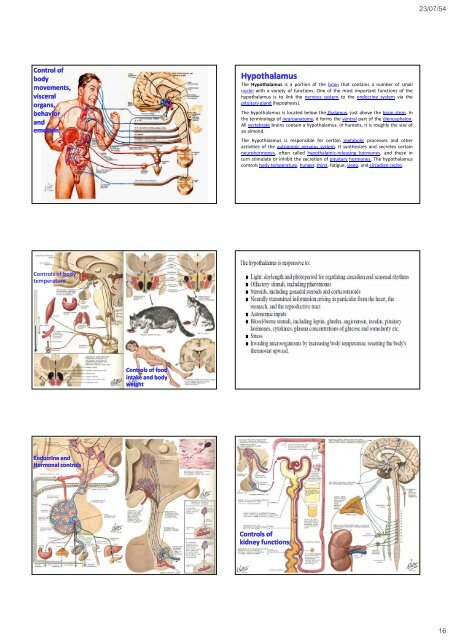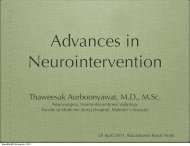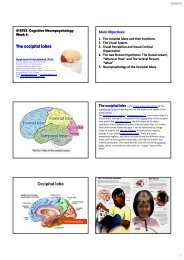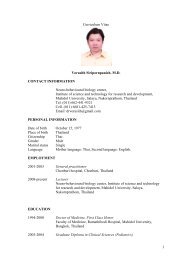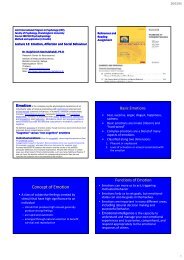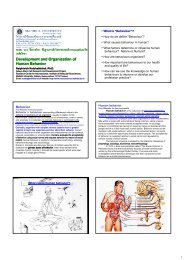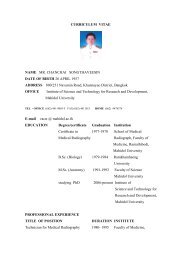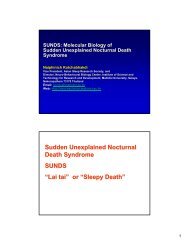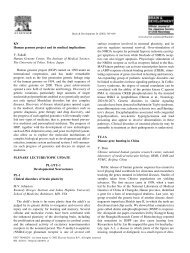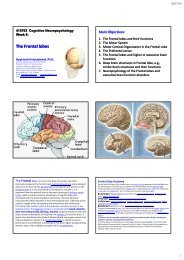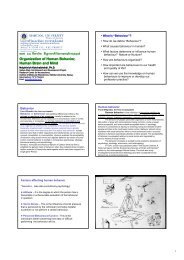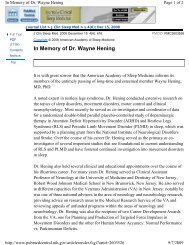Neurological Examination, clinical cases and neuropsychological ...
Neurological Examination, clinical cases and neuropsychological ...
Neurological Examination, clinical cases and neuropsychological ...
You also want an ePaper? Increase the reach of your titles
YUMPU automatically turns print PDFs into web optimized ePapers that Google loves.
23/07/54<br />
Control of<br />
body<br />
movements,<br />
visceral<br />
organs,<br />
behavior<br />
<strong>and</strong><br />
emotion<br />
Hypothalamus<br />
The Hypothalamus is a portion of the brain that contains a number of small<br />
nuclei with a variety of functions. One of the most important functions of the<br />
hypothalamus is to link the nervous system to the endocrine system via the<br />
pituitary gl<strong>and</strong> (hypophysis).<br />
The hypothalamus is located below the thalamus, just above the brain stem. In<br />
the terminology of neuroanatomy, itformstheventral part of the diencephalon.<br />
All vertebrate brains contain a hypothalamus. In humans, it is roughly the size of<br />
an almond.<br />
The hypothalamus is responsible for certain metabolic processes <strong>and</strong> other<br />
activities of the autonomic nervous system. It synthesizes <strong>and</strong> secretes certain<br />
neurohormones, often called hypothalamic‐releasing hormones, <strong>and</strong> these in<br />
turn stimulate or inhibit the secretion of pituitary hormones. The hypothalamus<br />
controls body temperature, hunger, thirst,fatigue,sleep,<strong>and</strong>circadian cycles.<br />
Controls of body<br />
temperature<br />
Controls of food<br />
intake <strong>and</strong> body<br />
weight<br />
Endocrine <strong>and</strong><br />
Hormonal controls<br />
Controls of<br />
kidney functions<br />
16


